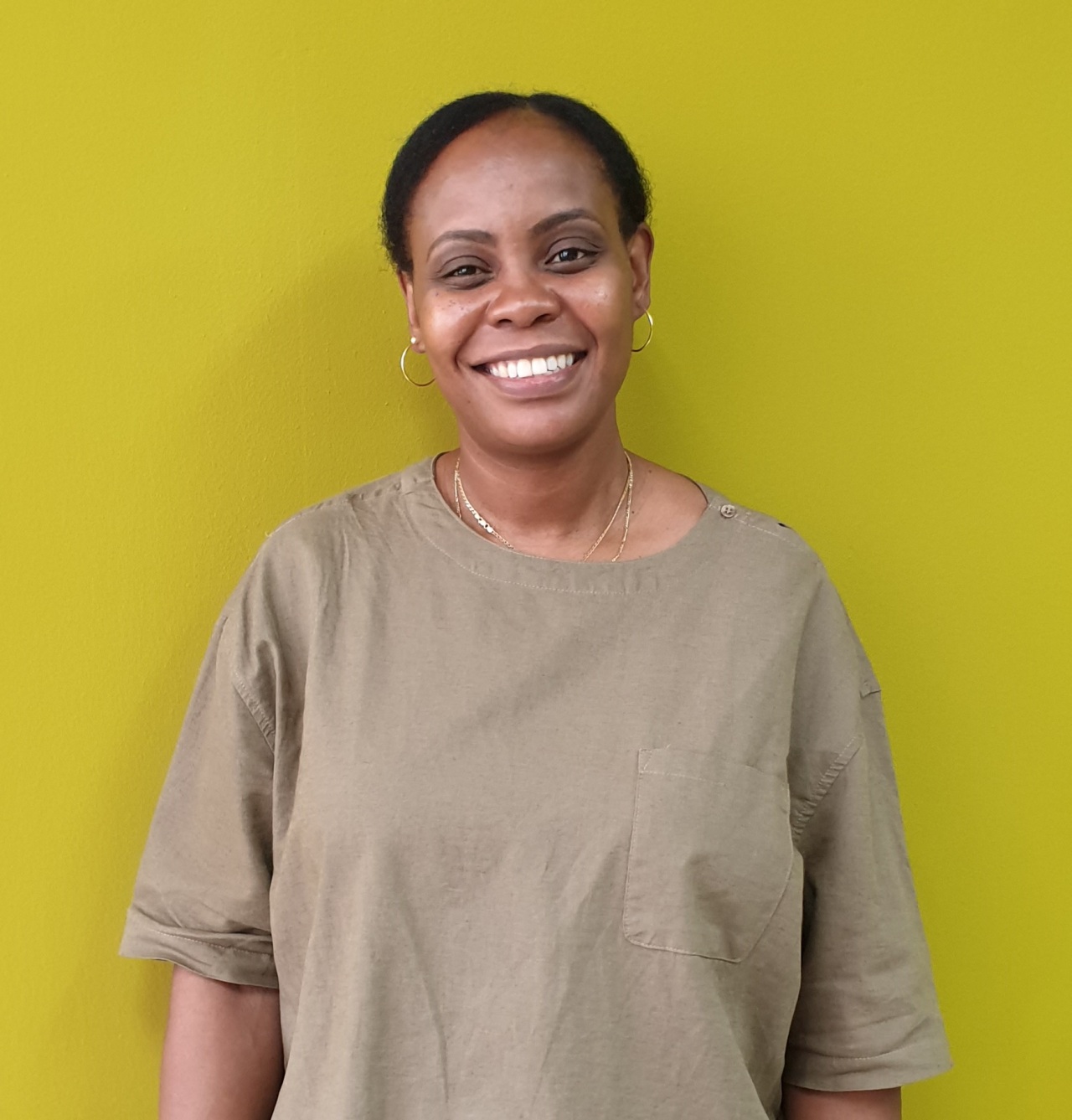For anybody, living in a foreign country as a migrant or refugee far away from home is challenging enough. For a refugee woman in South Korea, it is a constant struggle to fight prejudice, isolation and a lack of opportunities.
“Living in Korea, for men, I think it is easier to find a job. But for women, they cannot do or learn many things, especially when they have children to take care of,” said “Miyah,” head of EcoFemme, during an interview with The Korea Herald last week.
“Instead of staying home and doing nothing, they can come freely and learn something. That’s the way we started EcoFemme,” said Miyah, who wanted to be identified only by her nickname.
 |
Miyah, head of EcoFemme, poses for a picture. (EcoFemme) |
Miyah, who was recognized as a refugee in 2011, came to Korea in 2004 after fleeing the Democratic Republic of Congo for fear of political persecution. She took over at EcoFemme, a nongovernmental organization for refugee and migrant women, in May.
She is the first refugee to head a local NGO.
Founded in 2009, EcoFemme works to help refugee women adapt to Korean society and stand on their own feet. It offers consulting, financial support and art therapy as well as classes on Korean language, drawing, knitting and sewing.
More than anybody, Miyah, the mother of two teenage sons, understands what it is like to live in Korean society as a black refugee woman -- a constant process of losing confidence in herself.
“I was shocked to see how Koreans reacted to a black person. I felt like we were not human beings. They (some Koreans) called me ‘Gorilla.’ Nobody wants to sit next to you on subways. They asked me, ‘Do you have cars in your country?’” she said, recalling some uncomfortable experiences she has encountered while living in Korea for 15 years.
“Coming here … I couldn’t work. The only option was working at factories. But I always wanted to learn,” she said.
By joining art projects at EcoFemme, her life has changed. She was able to restore confidence in herself and the future she could build here.
“When I saw my drawing on the T-shirts and Koreans buy them, I was proud of myself,” she said. “Yes, I might be from a poor continent. But at least they (Koreans) wear something (that was created) by my mind and feelings. I felt really great.”
And that is what she wants to do for other refugee and migrant women -- make their presence visible, have their voices heard and connect them to Korean society, she said.
EcoFemme now has become a platform for women to gather, communicate and empower themselves. They draw, paint and make handcrafted accessories that reflect their feelings, cultures and identities, which are displayed at an annual exhibition and put up for sale.
This year’s exhibition is scheduled for December.
Within next year, it aims to establish a sustainable platform for refugee and migrant women: a Mosaic Art Center in Seoul they can access more easily and where they can interact with others and work on projects at any time.
“Through the center, migrant women can become teachers and they can also bring some knowledge to Koreans and Korean society. They can also become something,” she said.
(
laeticia.ock@heraldcorp.com)








